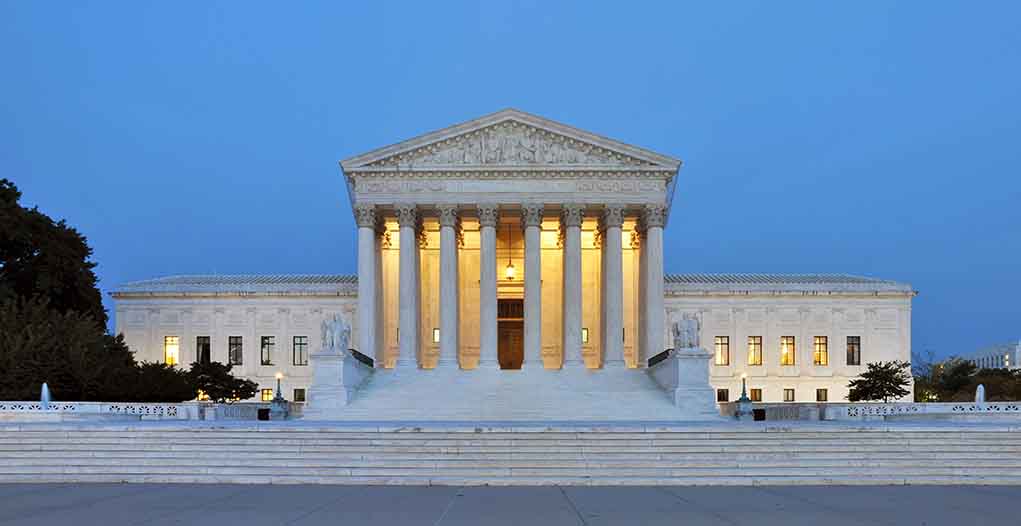
The Supreme Court’s recent ruling has introduced crucial flexibility in deportation deadlines, sparking debate and curiosity about the impact on immigration processes.
Key Takeaways
- The Supreme Court ruled 5-4 in favor of deadline flexibility for immigrants whose deadlines fall on weekends or holidays.
- The case involved Hugo Abisai Monsalvo Velázquez, a Mexican immigrant in the U.S. for nearly 20 years.
- Justice Neil Gorsuch authored the majority opinion, aligning with Chief Justice Roberts and three liberal justices.
- Four conservative justices dissented, raising questions about jurisdiction and legal precedent.
- Outcome deemed a step toward fairer handling of immigration cases, safeguarding due process rights.
Court Grants Flexibility in Deadlines
The Supreme Court ruled 5-4, extending deportation deadlines that coincide with weekends and holidays to the next business day. This decision offers crucial flexibility for immigrants facing deportation, aligning with principles of fairness and due process. It enshrines a significant modification in handling voluntary departure timelines, thus impacting numerous immigration cases.
The ruling stems from the case of Hugo Abisai Monsalvo Velázquez, a Mexican immigrant who has lived in the U.S. for nearly 20 years. Despite settling in Denver, working, marrying, and starting a family, he faced a deportation order in 2021, highlighting the challenging navigation of immigration regulations.
The US Supreme Court gave immigrants who agree to voluntarily leave the country more time to appeal their deportation if their departure deadline falls on a weekend or holiday. https://t.co/borWeQuEW3
— Bloomberg Law (@BLaw) April 22, 2025
Gorsuch Leads Majority Opinion
Justice Neil Gorsuch, supported by Chief Justice John Roberts and three liberal justices, penned the majority opinion emphasizing humane treatment through deadline extensions. Justice Samuel Alito, part of the dissent, critiqued this decision as unwarranted legal flexibility, suggesting that the original statutory deadlines should remain intact. “Saturday is a day of the week, and there is no reason why petitioner could not have left the country on or before that date,” argued Justice Alito.
The court’s decision drew dissent from four conservative justices who believed the case should be revisited by a lower court to determine jurisdiction. Justice Samuel Alito critiqued the decision as deviating from precedent, focusing on reinforcement rather than reinterpreting existing laws.
Just in: The court rules that in immigration cases when the gov’t delays detention and deportation for up to 60 days to allow an immigrant to leave the country on their own, a voluntary-departure deadline that falls on a weekend or legal holiday extends to the next business day.
— SCOTUSblog (@SCOTUSblog) April 22, 2025
Impact on Immigration and Governance
The Supreme Court’s ruling is perceived as a step towards creating a more equitable immigration system by recognizing and accommodating logistical challenges. Supporters emphasize it protects human dignity against bureaucratic inertia, whereas critics argue the decision could encourage leniency detrimental to legal enforcement.
As the nation grapples with balancing legal obligations and individual rights, this ruling highlights the tug-of-war in governance amid complex immigration contingencies. It may foreshadow upcoming challenges on immigration policies, possibly influencing future cases and legislative reforms.
Sources:
- Divided Supreme Court finds some deadline flexibility for immigrants who agree to leave U.S.
- US Supreme Court orders temporary halt to deportations under antique law
- Divided Supreme Court finds some deadline flexibility for immigrants who agree to leave U.S.
- Supreme Court rules weekends don’t count when it comes to deportation deadlines – Washington Times

